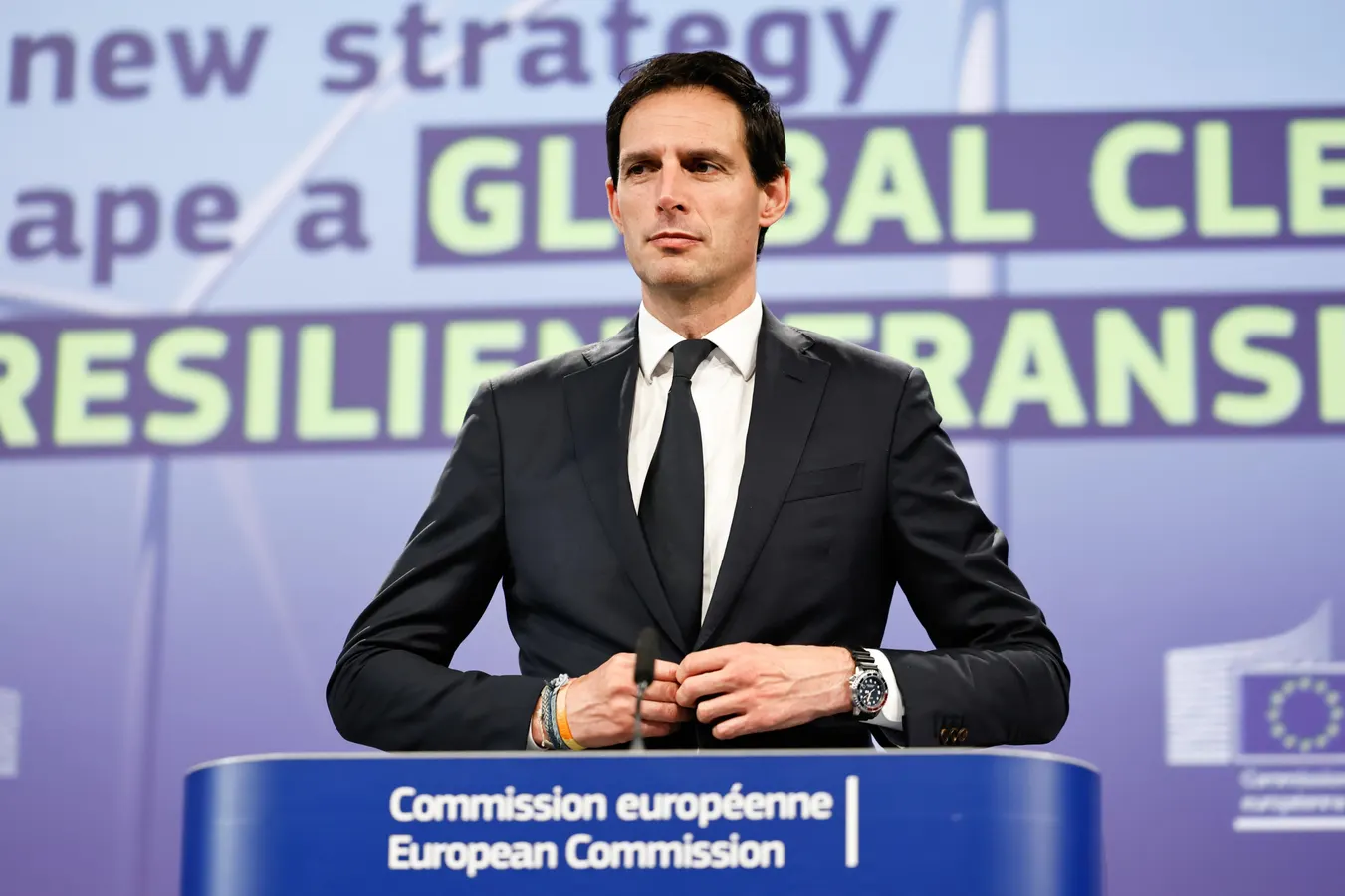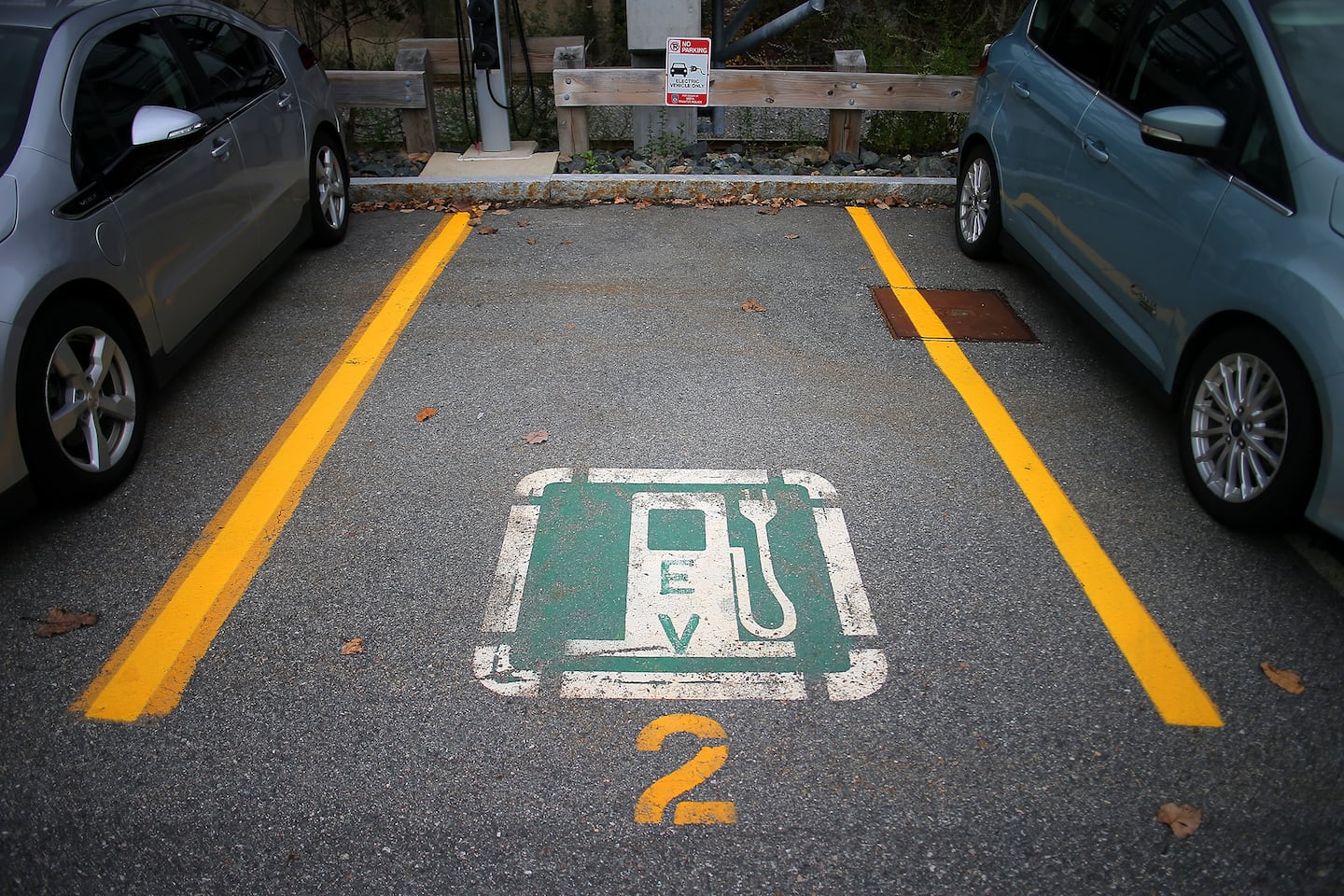Copyright forbes

Wopke Hoekstra, climate commissioner of the European Union, during a news conference on the "EU's New Strategy To Shape A Global Clean And Resilient Transition" in Brussels, Belgium, on Thursday, Oct. 16, 2025. European Union countries will begin debating next week how much preferential treatment to give domestic firms bidding for public contracts worth about €2.5 trillion ($2.9 trillion) a year. Photographer: Simon Wohlfahrt/Bloomberg © 2025 Bloomberg Finance LP Brussels is rewriting the rules of sustainability reporting and corporate-due-diligence, key pillars of its sustainable-finance agenda. For corporates and investors, the outcome will shape how easily capital can flow to credible transition strategies. Lawmakers have advanced an Omnibus reform to the EU’s corporate sustainability regime, moving it from committee approval to plenary debate, a measure that keeps mandatory transition plans but raises company-size thresholds and drops civil-liability rules. Supporters call the move a long-overdue correction. Critics warn it is a step back from the transparency and accountability that made Europe a global leader in sustainable finance. Simplification Or Slow Retreat The Omnibus reforms form part of the European Commission’s “competitiveness and simplification” agenda, a response to years of complaints about complex reporting requirements under the Corporate Sustainability Reporting Directive (CSRD) and the Corporate Sustainability Due Diligence Directive (CSDDD). Pedro Oliveira, director of legal affairs at BusinessEurope, said that compliance costs were “highly underestimated” and that the pre-Omnibus due-diligence rules “forced companies to map their whole value chains and ultimately be accountable for facts that they cannot possibly know or control.” A Danish government survey found that one-off compliance costs for Danish firms alone reached €0.8 billion, exceeding the European Commission’s original estimate for the entire EU. In written comments, Oliveira maintained that “simplification is not incompatible with remaining ambitious on sustainability,” adding that excessively complex rules “tend to lead to box-ticking exercises, and risk disinvestment and withdrawing from markets.” MORE FOR YOU That case for deregulation resonated. The European Parliament’s plenary version, based on the JURI Committee’s compromise, raises the threshold for company coverage to firms with more than 5,000 employees and €1.5 billion in turnover, limits due diligence to the same scale, and removes the EU-level civil-liability regime that would have allowed victims to seek damages for human-rights or environmental harms. Yet before policymakers reached for the delete key, early evidence suggested the framework was beginning to deliver results. Evidence From The First Year Of Reporting Empirical data from the first wave of CSRD reports suggests that disclosure was starting to drive substantive change. Research by the public-interest legal group Frank Bold examined 100 large European companies across multiple sectors and found that, in the first year of CSRD implementation, 54% published climate transition plans and 73% disclosed decarbonisation targets, with 40% committing to net zero. Compared with the prior reporting year, the share of companies describing material risks rose from 53% to 94%, and those identifying material impacts from 15% to 94%. According to Frank Bold, these figures show that the CSRD was encouraging companies to go “beyond boilerplate disclosures” toward a management tool for navigating climate and social risk. Yet even before the shift in the EU’s perspective, weaknesses persisted: only 15% of companies assessed locked-in emissions or external transition barriers, and just 11% detailed how due diligence was implemented. Governance gaps remained, with limited evidence of board-level oversight of sustainability measures. Filip Gregor, head of responsible companies at Frank Bold, said the findings demonstrate that “the framework is delivering, companies are moving beyond boilerplate disclosures. The best performers have adopted a risk-based approach to their value chains, assessed dependencies that could jeopardise their transition, and fully engaged their governance bodies.” He warned that “a stable framework and continued guidance, not deregulation, is essential to turn disclosure into effective risk management.” Those results suggest Europe’s reporting architecture was beginning to yield tangible benefits just as policymakers are preparing to loosen it. Accountability Off The Table For advocates of responsible business, the removal of liability represents a sharp reversal. Richard Gardiner, interim head of EU policy at ShareAction, said the outcome “shows the good, the bad, and particularly the ugly of where Europe stands on sustainable business rules. The decision to remove civil liability is a serious setback for corporate accountability and enforcement. Companies should be held responsible when they fail to prevent harm to people and the planet.” Gardiner acknowledged that some positive elements remain, such as mandatory climate transition plans and a due-diligence framework, but described the broader direction as “deeply concerning” and reflective of a “constant back-and-forth holding back Europe from delivering on its sustainability commitments.” Investor Confidence And Data Integrity Institutional investors see a different kind of risk: information asymmetry. Elise Attal, head of EU policy at the Principles for Responsible Investment (PRI), warned that withdrawing the liability regime “would remove legal certainty, create an uneven playing field across the Union and restrict access to justice for victims.” The change, she said, “increases legal and reputational risks for investors.” The PRI argues that raising thresholds and narrowing value-chain scope will create transparency gaps across portfolios. Only around 6,000 EU and 900 non-EU companies were expected to fall under the original directive; the Omnibus changes would shrink that universe further, excluding many mid-sized firms from mandatory disclosure. “Rather than simplify, these amendments add complexity, diverge from established international guidelines, and create additional work for investors,” said Attal. From a fiduciary perspective, she added, mandating transparency “is conducive to competitiveness and growth. Companies that disclose sustainability-related risks are likely to be more resilient, better prepared for sustainability-related challenges and opportunities, and more capable of communicating these factors to investors.” The investor view reframes the argument. Compliance costs are visible and immediate; data erosion is slower but ultimately more expensive. Reliable information is the foundation of efficient markets, and weakening it threatens the credibility of Europe’s sustainable-finance ecosystem. Global Ripple Effects While Brussels argues that deregulation will restore competitiveness, the decision parallels U.S. policy whiplash, where political pressure froze the SEC’s 2024 climate-reporting rule, leaving investors with uncertainty instead of clarity. Yet the risks driving disclosure have not gone away, the European Central Bank warns climate-linked insurance losses already exceed €30 billion a year, threatening financial stability. Climate impacts now pose material threats to credit portfolios, insurance solvency, and asset values. In contrast, California is moving ahead. Two landmark laws, SB 253 and SB 261, require large companies operating in the state to disclose greenhouse-gas emissions and climate-related financial risks. Reporting for Scopes 1 and 2 emissions begins in 2026, Scope 3 in 2027, with climate-risk reports due every two years. These laws will cover thousands of companies with revenues above $500 million, creating an effective U.S. disclosure regime despite federal hesitation. Globally, the direction of travel is clearer still. China continues to expand its national emissions-trading system and integrate climate risk into financial supervision. Across Asia and Africa, governments increasingly frame the low-carbon transition as a source of competitive advantage rather than a compliance burden. For emerging economies investing in renewable manufacturing, critical minerals, and adaptation infrastructure, climate policy is becoming industrial policy. Against that backdrop, the PRI expects the Omnibus changes to have limited direct impact on global alignment, since the CSRD still extends to thousands of non-EU firms. But the signal matters. Investors have repeatedly asked EU policymakers to preserve the “core elements” of sustainable-finance legislation to ensure that data remains reliable, comparable, and decision-useful. For business leaders, the takeaway is practical. Even if EU thresholds rise, global investors will still demand decision-useful sustainability data aligned with ISSB and emerging assurance standards. Companies that maintain rigorous reporting will preserve access to capital and credibility in supply-chain and M&A due-diligence processes. Europe’s Delays Have Real-World Costs A recent investigation by Earthsight and Indonesia’s Auriga Nusantara found that timber from newly cleared Borneo forests, including former orangutan habitat, still reaches European markets. Delays in the EU’s planned deforestation-free supply-chain law have allowed high-risk wood products to continue entering the bloc legally. “European money is helping to destroy some of the last orangutan strongholds left on Earth,” said Aron White of Earthsight, warning that without swift implementation “companies will keep hiding behind misleading green labels.” The timing is telling. Even as lawmakers in Brussels dilute enforcement provisions in corporate sustainability rules, NGOs are documenting how European demand still drives destructive practices abroad. What appears to be administrative easing at home risks becoming a self-inflicted strategic risk, eroding the credibility Europe needs to compete in an economy defined by climate risk, resource security, and biodiversity loss. The Credibility Test At its best, Europe’s sustainability architecture offered markets something rare: predictability. Diluting those rules risks re-fragmenting the landscape just as sustainability data becomes central to credit analysis, insurance underwriting, and portfolio valuation. The political desire for relaxation is understandable. After years of economic pressure, many governments want to reduce costs and signal support for business. But markets depend on trust, and trust depends on transparency. If policymakers hollow out the systems that generate credible information, they may find the price of simplicity is uncertainty. The next stage is crucial. With the Omnibus package now before the full European Parliament, lawmakers and the Council must reconcile their positions before year-end. Investors will judge whether Europe can preserve the credibility that once made its sustainability framework a benchmark, a decision that will determine not only the framework’s future but also market confidence in its data. They will judge whether Europe can preserve the credibility that once made its sustainability framework a benchmark for markets worldwide. The decision will determine not only the future of Europe’s sustainability framework but also the confidence of markets that rely on its data. Editorial StandardsReprints & Permissions



